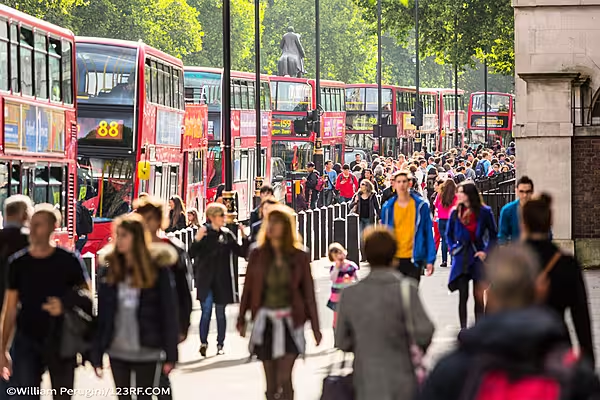British consumers unexpectedly increased their shopping in January, but the overall picture remains one of weak demand from inflation-hit consumers who are relying more on discount retailers, official data showed on Friday.
"After December's steep fall, retail sales picked up slightly in January, although the general trend remains one of decline," ONS director of economic statistics Darren Morgan said in a statement.
Increase In Volumes
Sales volumes rose by 0.5% from December for only second month-on-month increase since August 2021. A Reuters poll of economists had pointed to a 0.3% fall in sales last month.
But sales volumes in the key Christmas month of December fell more deeply than previously reported, dropping by 1.2% from November, rather than the original estimate of a 1.0% decline.
Sales fell by 5.1% compared with January 2022 for their 10th consecutive year-on-year drop, the longest such run since the 2008-09 global financial crisis.
Volumes were 1.4% below their levels immediately before the coronavirus pandemic struck.
Britain's economy is widely expected to fall into a recession this year and the consumer confidence index published by polling firm GfK last month showed households close to their gloomiest since at least 1974.
Sterling fell slightly against the dollar and the euro after the data was published.
Inflation Turning A Corner?
The Bank of England this month said the surge in inflation seemed to be turning a corner and data published on Wednesday showed the consumer prices index fell by more than expected, although at 10.1% it is more than five times the BoE's target.
It is also much higher than growth in wages, eating into the spending power of consumers.
The BoE is expected by most investors to raise interest rates again, this time by a quarter of a percentage point in March, and possibly by the same amount in May, which would take Bank Rate to 4.5%, the highest since 2008.
ONS director Morgan said fuel sales rose in January, reflecting a fall in prices, and discounting helped boost sales for online retailers as well as jewellers, cosmetic stores and carpet and furnishing shops.
But clothing store sales fell back sharply having risen for four months and food store sales fell again as consumers hunted for cheaper products to ease their cost-of-living squeeze.
Retailers are battling to win over price-conscious shoppers.
Recent industry data has shown particularly strong performances from German-owned discounters Aldi and Lidl as shoppers seek to offset grocery inflation, which hit a record 16.7% in the four weeks to Jan. 22.
The British arm of Aldi said this week it would hire more than 6,000 workers.
News by Reuters, edited by Donna Ahern, Checkout. For more retail news, click here. Click subscribe to sign up for the Checkout print edition.





